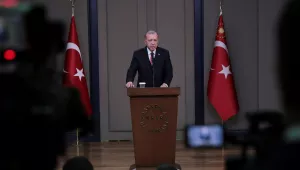Abstract
In The Israel Lobby and U.S. Foreign Policy, we argued that the "special relationship" between the United States and Israel is due largely to the influence of a domestic interest group—comprised of Jews as well as non-Jews—and that this unusual situation is harmful to both the United States and Israel. Jerome Slater's thoughtful review endorses many of our central arguments, but it also highlights several points of disagreement. He argues that we overlooked important alternative sources, defined the lobby too broadly, and exaggerated its influence on Congress and especially the Executive Branch. Although Slater is even more critical of U.S. Middle East policy than we are, he argues that the special relationship is due to strong cultural and religious affinities and broad public support in American society, and not to the influence of the lobby. In fact, the alternative sources cited by Slater do not undermine our basic claims; a broad conception of the lobby makes more sense than his narrower definition; and there is little disagreement between us about the lobby's influence on Capitol Hill or in the White House. Most importantly, public opinion in the United States does not explain why the United States gives Israel such extensive and nearly unconditional backing. Although most Americans have a favorable image of Israel, surveys show that they also favor a more even-handed Middle East policy and a more normal relationship with Israel. Thus, the special relationship is due primarily to the lobby's influence, and not to the American people's enduring identification with the Jewish state.
"We wrote about the Israel lobby to encourage a more open discussion of America's "special relationship" with Israel. The United States gives more foreign aid to Israel than to any other country, even though Israel is now a prosperous country with a per capita income that was twenty-ninth in the world in 2006. Israel gets consistent diplomatic backing from Washington, which almost always takes Israel's side in regional disputes. Most importantly, however, these various elements of support are given nearly unconditionally. In other words, Israel gets American backing even when it does things the United States opposes, such as building settlements in the Occupied Territories. Israel's actions are rarely criticized by American officials, and certainly not by anyone aspiring to high office. Finally, key aspects of U.S. foreign policy are conducted with the aim of making Israel more secure. Yet the causes of the special relationship has been a taboo subject within the mainstream foreign policy community, even after the September 11 attacks cast a bright light on America's troubled position in the Middle East.
Our research led us to conclude that the special relationship is now harmful to the United States and Israel alike, and that a more normal relationship would be better for both countries. We wrote our original article and subsequent book to focus attention on the lobby's activities and impact, because we believe it is the main element that sustains this counterproductive policy...."
This essay was written in response to a review essay of The Israel Lobby and U.S. Foreign Policy by Jerome Slater which appeared in the same issue of Security Studies as "The Two Books of Mearsheimer and Walt."
Mearsheimer, John J. and Stephen M. Walt. “Is It Love or The Lobby? Explaining America's Special Relationship with Israel.” Security Studies, January-March 2009







